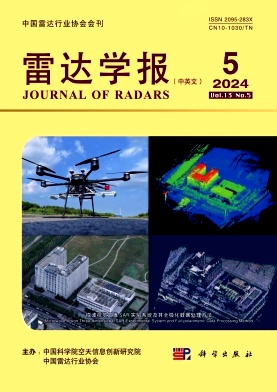贝叶斯框架下的群空间对象跟踪
Q2 Physics and Astronomy
引用次数: 2
摘要
有效地跟踪和编目广泛密集的空间目标群是空间监视的必要条件。作为低地球轨道(LEO)空间监视的主要工具,地基雷达系统在跟踪小而密集的空间碎片簇时,通常受到分辨率的限制。这样,所获得的目标检测和观测信息将受到严重影响,使得传统的跟踪方法效率低下。因此,我们提出了群体跟踪的概念。一组物体的整体运动趋势特别集中,而单个物体实际上同时被跟踪。跟踪过程基于贝叶斯框架。在高脱靶情况下,利用群中心和多目标观测值之间的约束,可以大大提高目标数重建和单个轨迹估计的精度和鲁棒性。利用马尔可夫链蒙特卡罗粒子(MCMC-Particle)算法求解贝叶斯积分问题。最后,通过对群空间目标的跟踪仿真,验证了所提方法的有效性。本文章由计算机程序翻译,如有差异,请以英文原文为准。
Tracking of Group Space Objects within Bayesian Framework
It is imperative to efficiently track and catalogue the extensive dense group of space objects for space surveillance. As the main instrument for Low Earth Orbit (LEO) space surveillance, ground-based radar systems are usually limited by their resolving power while tracking small, but very dense clusters of space debris. Thus, the information obtained regarding target detection and observation will be seriously compromised, making the traditional tracking method inefficient. Therefore, we conceived the concept of group tracking. The overall motional tendency of a group’s objects is particularly focused, while individual objects are in effect simultaneously tracked. The tracking procedure is based on the Bayesian framework. According to the restriction among the group center and observations of multi-targets, the reconstruction of the number of targets and estimation of individual trajectories can be greatly improved with respect to the accuracy and robustness in the case of high miss alarm. The Markov Chain Monte Carlo Particle (MCMC-Particle) algorithm is utilized to solve the Bayesian integral problem. Finally, the simulation of the tracking of group space objects is carried out to validate the efficiency of the proposed method.
求助全文
通过发布文献求助,成功后即可免费获取论文全文。
去求助
来源期刊

雷达学报
Physics and Astronomy-Instrumentation
CiteScore
4.10
自引率
0.00%
发文量
882
期刊介绍:
Journal of Radars was founded in 2012 by the Institute of Space and Astronautical Information Innovation of the Chinese Academy of Sciences (formerly the Institute of Electronics) and the China Radar Industry Association (CRIA), which is located in the high-end academic journal and academic exchange platform in the field of radar, and is committed to promoting and leading the scientific and technological development in the field of radar. The journal can publish Chinese papers and English papers, and is now a bimonthly journal.
Journal of Radars focuses on theory, originality and foresight, and its scope of coverage mainly includes: radar theory and system, radar signal and data processing technology, radar imaging technology, radar identification and application technology.
Journal of Radars has been included in domestic core journals and foreign Scopus, Ei and other databases, and was selected as ‘China's high-quality science and technology journals’, and ranked the first in the category of electronic technology and communication technology in the ‘Chinese Core Journals List (2023 Edition)’.
 求助内容:
求助内容: 应助结果提醒方式:
应助结果提醒方式:


